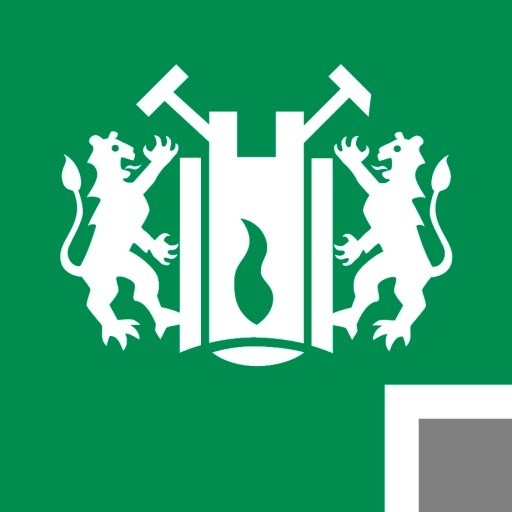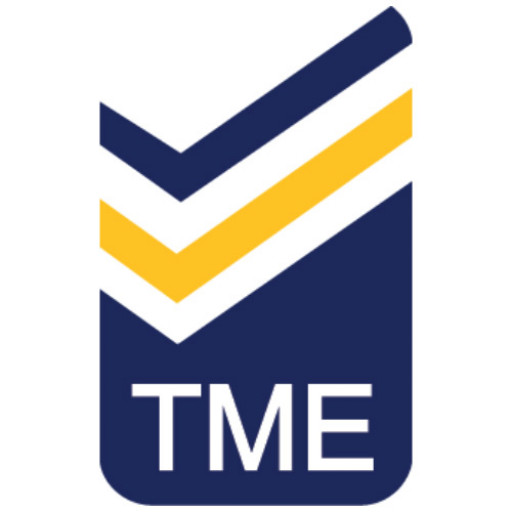Photos of university / #tuclausthal
The Master's programme in Mining Engineering focuses on providing students with the scientific qualifications needed for employment within the mining industry. Due to the broad range of topics covered in the lectures, students acquire the knowledge necessary in order to take up leading positions requiring a sound scientific background.
Students have the opportunity to work in interdisciplinary teams in different parts of the mining industry. Additionally, students are able to conduct research and generate reports to ensure the safe and environmentally friendly exploration and extraction of mineral resources. This is thanks to the profound knowledge of the following topics which they acquire during the Master's programme in Mining Engineering:
Students have the opportunity to work in interdisciplinary teams in different parts of the mining industry. Additionally, students are able to conduct research and generate reports to ensure the safe and environmentally friendly exploration and extraction of mineral resources. This is thanks to the profound knowledge of the following topics which they acquire during the Master's programme in Mining Engineering:
- Surface Mining
- Underground Mining
- Shaft Sinking
- Mining Machinery
- Underground Mine Ventilation and Climatisation
- Drilling Engineering
- Geoinformation Systems
- Economic Geology
- Rock Mechanics
- Mineral Resources
- Mineral Processing
- Project development in Underground Mines
- And a lot of elective modules in different topics...
Educational organisation
1 Credit Point (CP) is equivalent to 1 ECTS Point = 30 hours workload per semesterIf modules are held in two semesters, they will be listed twice in the list below (once in each semester).
First semester (winter semester):
Module: Shaft Sinking (lecture and tutorial, 6 CP)
Module: International Mining (lectures, seminar and tutorial, 6 CP)
Module: Geoinformation Systems (lecture and tutorials, 6 CP)
Module: Mineral Resources (lecture, 6 CP)
Module: Advanced Drilling Engineering I (lecture and tutorial, 6 CP)
Module: seminar (3 CP)
Module: industry internship (6 CP)
Second semester (summer semester):
Module: Ventilation and Climatisation - advanced level (lecture and tutorials, 6 CP)
Module: Underground Mining Equipment I (lectures, 6 CP)
Module: Advanced Rock Mechanics (lecture and tutorial, 6 CP)
Module: Advanced Mine Surveying (lectures and tutorial, 5 CP)
Module: Mineral Processing (lecture and tutorial, 3 CP)
Module: Geoinformation Systems (lecture and tutorials, 6 CP)
Module: Mineral Resources (lectures, 6 CP)
Module: Underground Mine Planning (lecture and tutorial, 6 CP)
Third semester (winter semester)
Module: Advanced Surface Mining (lectures, 6 CP)
Module: Underground Mining Equipment II (lectures, 6 CP)
Module: Underground Mine Planning (lecture and tutorial, 6 CP)
Module: Applied Rock Mechanics (lecture and tutorial, 6 CP)
Module: Advanced Mine Surveying (lectures and tutorial, 5 CP)
Module: student research project (6 CP)
Module: elective I (lecture, 3 CP)
Module: elective II (lecture, 3 CP)
Fourth semester (summer semester):
Module: elective III (3 CP)
Module: elective IV (3 CP)
Module: student research project (6 CP)
Module: Master's thesis (21 CP)
In each of the four elective modules (I to IV) one of the following lectures has to be chosen:
- Specialised Driving Methods
- Project Development in Underground Primary Production
- Underground Blasting
- Software for Underground Mine Planning
- Advanced Drilling Engineering
- Natural Gas Storage in Rock Caverns
- Advanced Underground Mining
- Underground Emergency Response I
- Underground Emergency Response II
- Sustainability in Underground Mining
Study abroad unit(s)
A mandatory study abroad unit is not part of the curriculum of the Master's programme in Mining Engineering. However, students are encouraged to study a semester abroad at one of the numerous partner universities of Clausthal University of Technology.Internships
During the first two semesters of the Master's programme in Mining Engineering, an industry internship with a duration of minimum six weeks is mandatory. The staff of the university will assist students in finding an appropriate internship.Forms of assessment
- Written exam
- Oral exam
- Laboratory journal
- Marked experiment journal
- Seminar work
- Independent assignment
- Marked project
- Presentation
- Report
- Entrance exam
- Colloquium
- Course attendance certificate
- Thesis/paper
Course objectives
The goal of the programme is to equip graduates with a broad spectrum of skills, methods and knowledge in the sense of a problem-oriented approach. Interdisciplinary competence and internationality form the basis of this programme.The objective of the curriculum is to educate and train forward-looking mining engineers who are able to understand and implement current technical concepts for a safe, sustainable and environmentally friendly exploration and exploitation of mineral deposits, and who recognise the cross-links between the different disciplines in an increasingly complex mining industry and are able to act accordingly. During the programme, students work in interdisciplinary teams, which introduce them to the way of thinking and specific terminology of the different disciplines involved.
With an academic degree of Master of Science in Mining Engineering, graduates will develop advanced, science-based, professional skills and knowledge for application-oriented research and/or task management.
Language requirements
Applicants whose mother tongue is not the English language and whose Bachelor's degree has not been achieved in the English language must provide evidence of sufficient English language skills. Sufficient English language skills can be assumed if the applicant has an IELTS grade of 6.5 or better, or has been awarded at least 79 TOEFL IBT points.Academic requirements
Applicants must hold a Bachelor's degree in Mining Engineering.The Bachelor's degree should have been completed with a grade of 3.0 (according to the German grading system) or better.
If the applicant's Bachelor's degree is better than 3.5 and he/she meets at least one of the following criteria, he/she can enrol for the Master's programme in Mining Engineering:
- On-the-job experience or an internship in a relevant field with a duration of at least eight weeks
- The Bachelor's thesis was graded better than 2.0 and was completed no more than one year previously
- Relevant research activity can be proven, with a duration of at least eight weeks
Enrolment fees
Fee for student body: 10 EURFee for student services (Studentenwerk): 96 EUR
Fee for administration costs: 75 EUR
Total: 181 EUR per semester
(as of April 2016)
This fee comprises different components and may change slightly from one semester to the next.
Costs of living
Rent: about 200-450 EUR per monthFood: about 250 EUR per month
Health insurance: 80 EUR per month
Other, e.g. books, clothing, phone: about 70 EUR per month
Total: about 600-850 EUR per month (depending on individual habits)
Job opportunities
There are opportunities for student jobs at the university as student research assistants, but these are highly competitive.Arrival support
The International Center Clausthal (IZC) provides information and services for international students and researchers at TU Clausthal.Students receive a wide range of information, including a students' guide prior to arrival.
An orientation week is held for new international students, which provides valuable information about the university and the town. Offers include:
- Assisting students during the admission process
- Finding accommodation
- Providing help with local authorities (registration, etc.)
- Opening a bank account
- Finding health insurance
Academic support will be provided by the Institute of Mining. The programme coordinator will discuss the study programme with the students, offer support in selecting suitable classes, and advise students throughout their study programme.
Services and support for international students
During their entire stay, international students are supported by the International Center Clausthal (IZC). Services include:- German language courses at different levels
- Foreign language courses at different levels
- Intercultural workshops
- Wide range of social activities (e.g. excursions, events)
- Support by student guides (Uni-Lotsen)
Accommodation
International students enrolled at TU Clausthal can choose between staying in a student residence hall (Wohnheim) or in private accommodation.See: http://www.izc.tu-clausthal.de/en/wege-an-die-tu-clausthal/praktische-informationen/vor-der-anreise/wohnen/
Most students find accommodation from among the 1,250 places offered by student services (Studentenwerk OstNiedersachsen). Offers are diverse and range from single rooms, single apartments and doublets to shared flats. Each house has fast internet access as well as telephone connection and cable or satellite TV. Rent is in the range of 170-450 EUR per month.
Students must submit housing applications directly to student services.
See: http://www.stw-on.de/en/clausthal/wohnen








